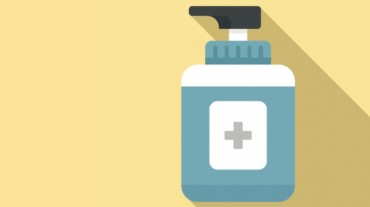
Amid the coronavirus pandemic, there’s one product that became hot property — the hand sanitiser. It flew off supermarket shelves like there’s no tomorrow, and as if it has the potential to provide the public an armour against the virus. But does the claim ‘kills 99.99% germs’ really hold true, or is it just another marketing ploy to sell a product that is in conjunction with people’s fears? Well, that’s exactly what we aim to find out in this piece today. But before we arrive at a conclusion, it’s essential to understand a little more about this ‘wonder product’.
During the first lockdown of 2020, when covid-19 was spreading its net far and wide, the hand sanitiser gained prime importance. Walking into a pharmacist and finding one was a rarity in the true sense. And this led to many making a fortune out of it! There were many companies that pivoted and persisted, and ended up mass churning this product. Now, here’s the question: what is the big deal about the hand sanitiser?

According to The Centers for Disease Control and Prevention, “if soap and water are not readily available, use a hand sanitiser that contains at least 60% alcohol.” Yes ladies, the active ingredient of a hand sanitiser is alcohol. Most of these solutions contain ethanol, which is present in higher quantities as compared to those in alcoholic beverages. Sometimes, isopropanol or n-propanol are also used in hand sanitisers. This ingredient is mixed with water and gels like glycol and glycerin, which prevents skin from drying out.
There’s a science behind it, believe experts. “What essentially happens is that bacteria and viruses have an outer covering, which is hard to break into. This is made from protein and lipids. It is the action of the alcohol that is present in the sanitiser that attacks this outer layer. There are many people who also use antibiotic-based soaps, but they aren’t as helpful,” says Vivek Patra, a Bhubaneswar-based virologist.
The added advantage is that bacteria and viruses cannot develop resistance, in case of alcohol-based sanitisers.
But just like everything, these have their cons too. For one, some alcohol-based sanitisers that are effective against bacteria and viruses can really dry out the skin. Some of them do add glycerol and glycerin, but not everyone. Also, glycerol is also sometimes added to thicken the solution. The commercial brands also add fragrances and colours, which really do not help the skin.

The other thing to keep in mind here is that the whole claim of ‘killing 99.99% germs’ is definitely a marketing gimmick. Why? That’s because the efficacy of a hand sanitiser is hinged on how dirty our hands are, and the kind of pathogen it is being used for. There’s no one-size-fits-all approach.
Last but not the least, a hand sanitiser has to be used in conjunction with hand washing with soap. That’s because they do not remove dirt properly.
So ladies, now that you know all about hand sanitisers, make an informed decision and then use them!
Select Topics of your interest and let us customize your feed.
PERSONALISE NOWGet Latest Updates on Preventive Care, Family Care, Reproductive Care, Self Care